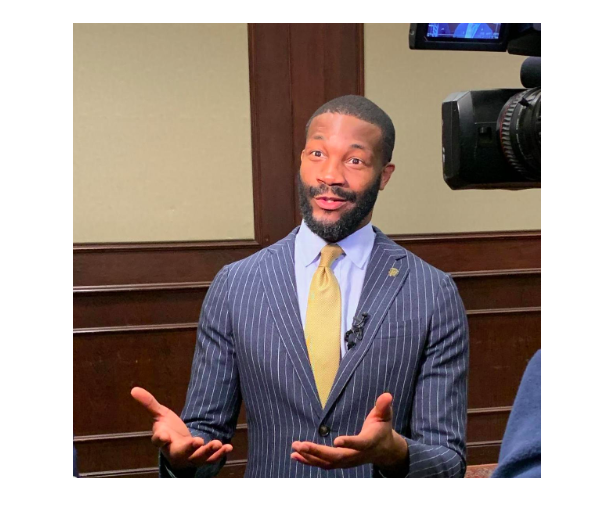Birmingham Mayor Randall Woodfin said Thursday that the proposed sale of several city-owned parking decks is an opportunity to lessen the economic damage done to the city by COVID-19 — including bringing back furloughed public library employees.
In an interview with Birmingham Watch, Woodfin said the city received an unsolicited offer from Birmingham Economic Development Partners LLC — a group founded last month by Shipt founder Bill Smith, according to paperwork filed in Jefferson County Probate Court — to purchase six of the city’s 11 parking decks for a total of $41 million.
If the sale is approved by the City Council, the city could receive that money in one lump sum in 60 days — which could go a long way toward offsetting the $63 million budget shortfall caused by COVID-19. Among other things, Woodfin said, the money would go toward reinstating library employees who were furloughed as a result of severe budget cuts.
“I think there are three things that are very important to the public right now,” Woodfin said. “And they are equally important to me. That’s our employees in libraries, our neighborhood revitalization/infrastructure and our social services. I think $40 million allows us to engage in all three things right away.”
Parking decks currently net the city roughly $1 million per year, but $600,000 of that goes to the Birmingham Parking Authority, which manages them. The BPA would continue to operate the five remaining city-owned decks, including the one adjacent to the Boutwell Auditorium.
The decks being considered for sale are located at:
- 401 N 20th St.
- 2128 Fourth Ave. N
- 2012 Fifth Ave. N
- 2010 Second Ave. N
- 509 N 17th St.
- 2021 Third Ave. S
Woodfin said he believes Birmingham Economic Development Partners has “every intention” to retain the employees currently working at those decks, and that the decks will also be subject to “significant upgrades.”
The future pricing of the decks “is being negotiated,” he said, adding that “there’s good faith on both parties to make sure that, over the next two years, whatever the current market is, it remains affordable and locked in for those who currently are using the decks.”
He also dismissed the suggestion that the move is part of an overall trend of privatizing city operations in response to COVID-19. Last month, for example, Woodfin and city Finance Director Lester Smith presented the council with options to overhaul Birmingham’s garbage pickup, which they said was “financially unsustainable” in its current form. One of the options they offered was to outsource garbage pickup to an outside company such as Waste Management.
That won’t be happening, Woodfin said Thursday — and he said that it’s “laughable” to say that the sale of the decks is part of any larger move toward privatization, for two reasons.
“One, the majority of the leases (of parking spaces in those decks) are with corporations,” he said. “Two, the majority of the actual people that use the decks that would be for sale are commuters, that are not residents in our city limits… Although this (proposed sale) was unsolicited, I did tell the public I was going to do everything I can to look at our city assets and generate revenue, because our priority is providing services to our residents.”
The proposal will come before the City Council for a vote “as soon as possible,” Woodfin said — but in the meantime, he’s inviting public input.
“It requires council approval, but what’s important for me is to listen to and understand the public,” he said. “Doesn’t mean we’re always going to agree, and people may have different opinions of it, but I think the majority of people would prefer us to invest in the other 98 neighborhoods. I think the majority of people would like to see our librarians not be furloughed, and our library branches be back open. This is an opportunity to do that. What does the public want?”
For him, the choice is clear.
“This is the chance, this is the opportunity, to bring our libraries back online and to provide that service to our residents,” he said. “This is a chance and opportunity for all of those neglected neighborhood infrastructures or neighborhood revitalization issues that require a significant amount of money — to the tune of millions. This is a chance, when you talk about addressing homelessness and mental health, to address those issues. Which one do we want to do? All of the above, or continue to operate the decks as-is? I would love to hear the opinions of the residents.”

